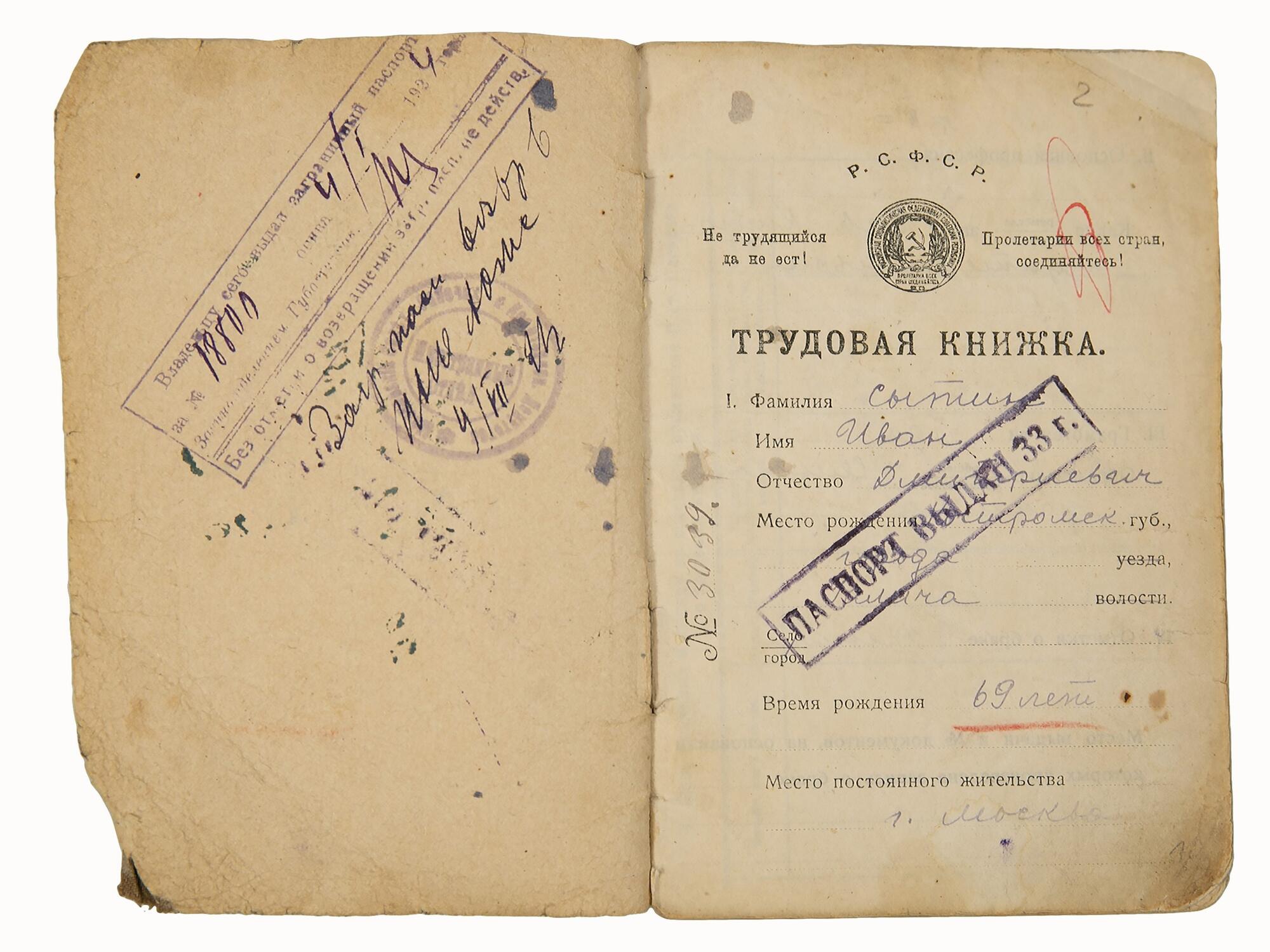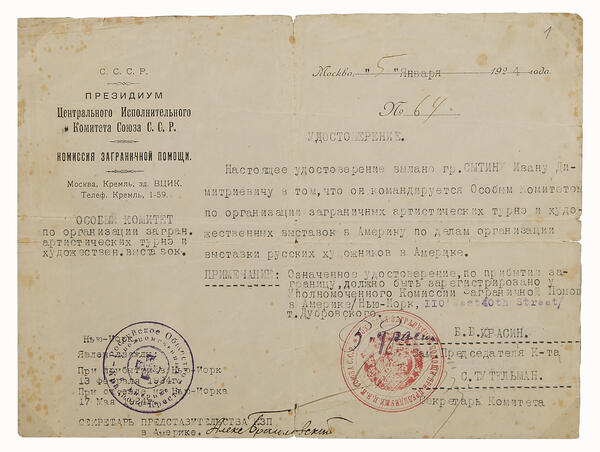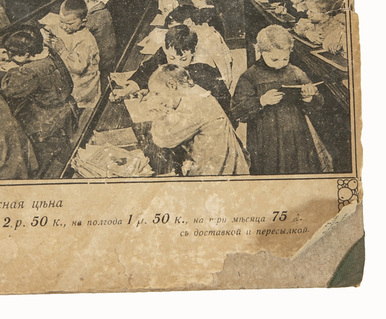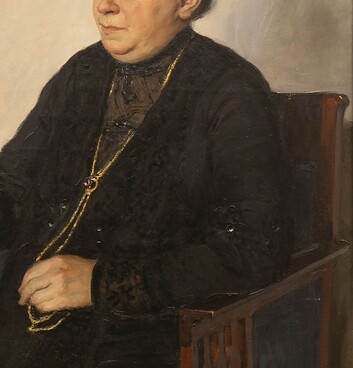In 1918, the All-Russian Central Executive Committee adopted the Labor Code: every worker was required to keep an employment record book with notes on positions, enrollments, dismissals, received remuneration and benefits. Peasants were not considered workers and did not receive such books.
In August 1920, Ivan Dmitrievich Sytin received an employment record book No. 3039. In the column “What crafts/professions does he know”, he personally noted — “Head of a book publishing house”. The place of work column indicates the publishing house of Sytin & Co, his position — director, and the time of admission — founder. Ivan Sytin could not imagine himself without a job, as well as without his people, whom he had served for 50 years.
Back in the spring of 1918, the People’s Commissar of Education Anatoly Vasilyevich Lunacharsky proposed for Sytin to take part in publishing books for the people “as an experienced and useful person in publishing.” It is known that the famous book publisher was even offered to head the State Publishing House of the RSFSR, but he refused, citing “lack of education”. He agreed, however, to be a consultant to Vatslav Vatslavovich Vorovsky, who took up the position.
“The Russian Alphabet Book” by Vasily Porfirievich
Vakhterov and “Alphabet Book” by Nikolay Vasilyevich Tulupov, as well as
Russian folk tales and collections for children were reprinted by Sytin from
1918 to 1920. At the same time Sytin signed a contract for the publication of
works with a prominent political figure Pyotr Alexeyevich Kropotkin. In May
1920, the Board of Children’s Literature at the press department of the
Mossoviet (city administration) approved 13 (out of 14) books prepared by the
publishing house of Ivan Dmitrievich Sytin. After the revolutionary events of 1917
and after the closure of “The Russian Word” and other publications of Ivan
Sytin, the publisher still enjoyed great authority in the newspaper world. For
some time, while under arrest, Sytin worked as the head of the printing house
at the Taganskaya Prison and the Ivanovo House of Corrections. Sytin claimed,
“the offer is modest: start working, put everything in order, revive, refresh,
apply, replenish… I didn’t want to leave publishing behind. Even though it’s
small, it is still a printing house, and I manage it in the most attentive way,
expecting results…”



